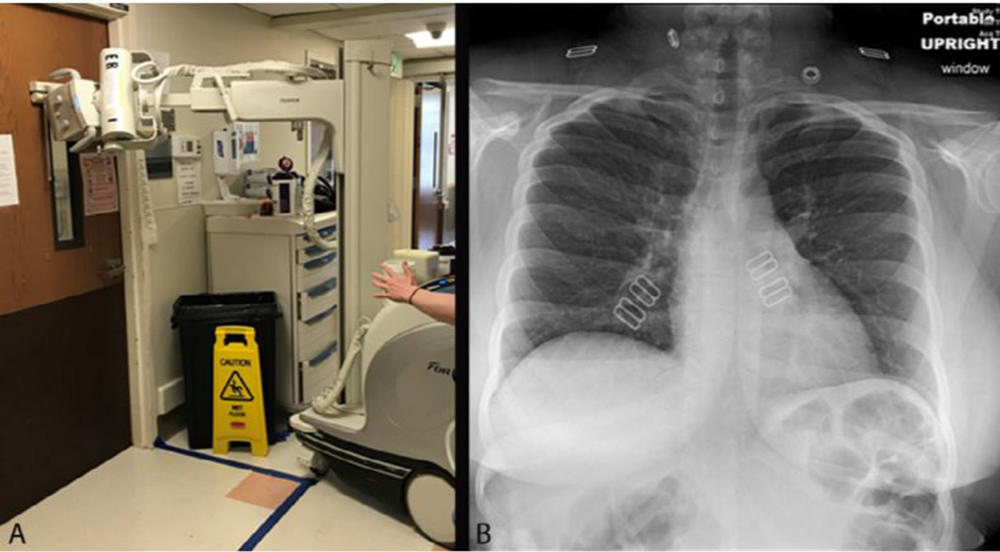RSNA Publishes COVID-19 Best Practices for Radiology Departments
Released: April 30, 2020
- RSNA Media Relations
1-630-590-7762
media@rsna.org - Linda Brooks
1-630-590-7738
lbrooks@rsna.org - Dionna Arnold
1-630-590-7791
darnold@rsna.org
OAK BROOK, Ill. (April 30, 2020) — The Radiological Society of North America (RSNA) COVID-19 Task Force has published a guidance document on best practices for radiology departments during the COVID-19 outbreak. “RSNA COVID-19 Task Force: Best Practices for Radiology Departments during COVID-19” aims to protect health care workers and the general public from COVID-19 exposure and spread, while maintaining critical radiology functions and preserving personal protective equipment (PPE) and other critical care resources during the pandemic.
For radiology departments to be suitably prepared during this outbreak, they must enact policies and procedures that allow continued operation during an extreme health care emergency, assist in the care of patients with COVID-19, and maintain radiology support for the entirety of the hospital and health system.
“The RSNA COVID-19 Task Force has developed these best practice insights to help guide radiology groups through the COVID-19 pandemic, providing tools and information to help them best care for their patients in an efficient manner, while protecting their patients and health care workers from potential exposures,” said task force chair Mahmud Mossa-Basha, M.D., from the University of Washington Medical Center.
The guidance document covers such areas as suspected or confirmed COVID-19 case precautions and procedures, COVID-19 screening, PPE for staff, post-imaging room cleaning, chest imaging, elective imaging, pregnancy, social distancing, meetings and workflows, and staff engagement and well-being.
The authors also advise that radiology departments consider formation of a crisis management team with standing meetings to assess the situation and adapt staffing and other approaches as needed.
RSNA is committed to providing trusted resources to the radiology community as they prepare for and manage patient surges caused by the spread of COVID-19. RSNA established the COVID-19 Task Force to lead RSNA’s efforts in educating radiologists and health care professionals about the impact of COVID-19 and develop needed tools to help radiology departments handle the crisis.
“In these unusual times, it is more important than ever that the radiology community work together,” said Bruce G. Haffty, M.D., RSNA Chairman of the Board. “In order to quickly develop the resources most needed by our members and health care professionals around the world, the RSNA board gathered leaders with the particular expertise and experience to help our colleagues manage this crisis.”
The RSNA COVID-19 Task Force has been working to identify and prioritize radiology’s needs stemming from the outbreak. In addition to Dr. Mossa-Basha, task force members include Javad R. Azadi, M.D., Johns Hopkins Medicine, Christopher Filippi, M.D., North Shore LIJ Health System, Maryellen L. Giger, Ph.D., University of Chicago, Jeffrey S. Klein, M.D., University of Vermont (RSNA Board member), Jane Ko, M.D., New York University Langone Health, Brian S. Kuszyk, M.D., Eastern Radiologists, Carolyn C. Meltzer, M.D., Emory University (RSNA Board liaison), Christine O. (Cooky) Menias, M.D., Mayo Clinic, Arizona, Richard E. Sharpe Jr., M.D., Kaiser Permanente, Denver, Bien Soo Tan, M.D., Singapore General Hospital, and Erik M. Velez, M.D., University of Southern California.
“The RSNA COVID-19 Task Force is comprised of a group of radiologists with varied expertise and from different geographic and practice structure backgrounds,” Dr. Mossa-Basha said. “These multi-national radiologists are at the forefront of COVID-19 diagnosis and imaging algorithm development, national and institutional policy and guideline creation, and COVID-19 research.”
Dr. Mossa-Basha noted that the goal of the task force is to provide tools and information to radiologists that will equip them to manage the COVID-19 outbreak.
“These resources include guidance on departmental policies, surge and post-COVID preparedness insights, educational resources and radiology reporting tools,” he said.
RSNA has also created an online community specifically for COVID-19 discussions. After establishing a free RSNA account, health care professionals can ask questions, share ideas, get peer-to-peer support and discover lessons learned.
Additional RSNA COVID-19 resources may be found at RSNA.org/covid-19.
RSNA is an association of radiologists, radiation oncologists, medical physicists and related scientists promoting excellence in patient care and health care delivery through education, research and technologic innovation. The Society is based in Oak Brook, Ill. (RSNA.org)
Press Resources:
Images (JPG, TIF):

Figure 1. Imaging workflow and indications in patients suspected of having COVID-19.
High-res (TIF) version
(Right-click and Save As)

Figure 2. Chest radiography through glass. A, Technologists position the portable x-ray unit outside the patient room, with the tube peering through the mesh wire-reinforced isolation room window. B, Anteroposterior chest radiograph obtained is of diagnostic quality.
High-res (TIF) version
(Right-click and Save As)
